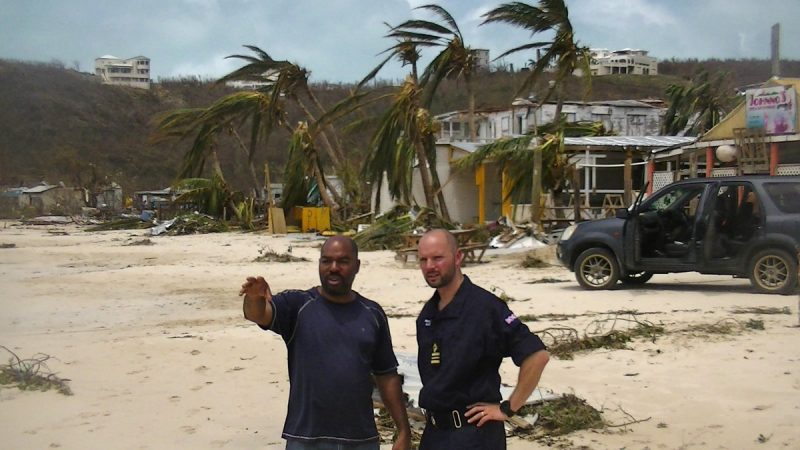While Hurricane Irma rampaged through the northeastern Caribbean this week, smashing buildings and weather records, 3000 kilometres away the UN climate science panel was scoping out its next big report.
In a bitter irony, some Caribbean delegates were unable to participate in the Intergovernmental Panel on Climate Change (IPCC) meeting to highlight the importance of assessing losses caused by climate change.
Climate scientists have been quick to link the ferocity of Irma to global warming, noting that elevated sea surface temperatures give storms energy. Judging the proportion of storm damage that can be blamed on climate change is a trickier prospect.
Small island states are keen to amass a stronger evidence base to bolster their calls for support in political negotiations.
Cash crunch
At the same time, the IPCC’s finances have reached crisis point, after US president Donald Trump promised to choke off its biggest source of funds.
If it cannot raise money to fill the gap, the panel will struggle to deliver its ambitious work programme for the next few years: three special reports and a methodology update, on top of their periodic comprehensive review of the science.
It is possible the US will reinstate its payments, after the senate appropriations committee voted in support on Thursday. Senators also sought to continue paying into the UN Framework Convention on Climate Change, but not the Green Climate Fund to support poorer countries. The budget will be finalised in negotiation with house of representatives, which sided with Trump on this issue.
Meanwhile, sources at the IPCC meeting told Climate Home governments including Australia, Japan, South Korea and the UK have shown willing to increase their contributions. Details will be confirmed after the meeting finishes on Sunday.
Climate conversations
Developing disasters: How urbanisation puts people and property at risk – Andrew Revkin
Norway election could be a turning point for Arctic oil – Truls Gulowsen, head of Greenpeace Norway
Brics summit
Narendra Modi promoted his International Solar Alliance at a summit of major emerging economies in Xiamen, China, on Monday.
India’s prime minister called on more sunny countries to join his pet project, which has only been ratified by nine to date.
Also at the summit, the New Development Bank, set up by China, India, Russia, South Africa and Brazil, touted its green credentials and Chinese renewables groups expressed their enthusiasm for investing abroad.
Car phaseout
Scottish leader Nicola Sturgeon announced a goal to end sales of new petrol and diesel cars in 2032, eight years earlier than the rest of the UK. In a statement emphasising Scotland’s green ambitions, Sturgeon also promised funds for a carbon capture and storage project.
It is the latest in a raft of national and municipal plans to end the reign of the internal combustion engine and switch to electric vehicles.
Don’t expect to see a similar pledge from Germany any time soon, though. An answer to a parliamentary question revealed auto lobbyists have met with the government every two days since the dieselgate scandal broke in 2015. Campaigners expressed concern about the industry’s influence on policy.
Abbott abroad
Tony Abbott is set to give the annual lecture for London-based climate sceptic lobby group the Global Warming Policy Foundation (GWPF).
Abbott will deliver a speech entitled ‘Daring to Doubt’ to an invited audience on 9 October, becoming the second former Australian prime minister to address the GWPF. Climate Home has asked for an invite, but it may still be in the post.
GWPF is led by former UK chancellor Nigel Lawson, who was recently criticised for incorrectly stating that global temperatures had “slightly declined” in the past decade, on a BBC radio news show.
